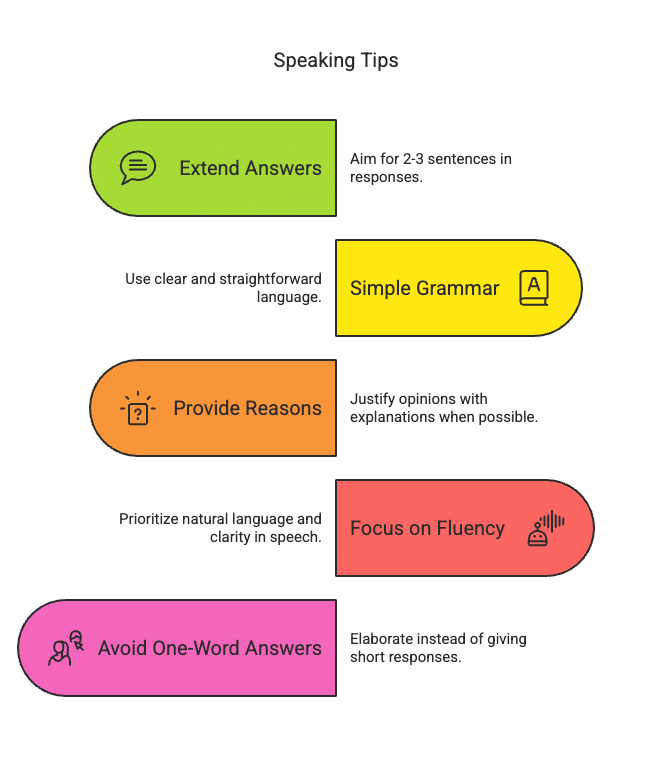Speaking Part 1: Sample Topic- Musical Instruments | Speaking for IELTS PDF Download
How to Answer IELTS Speaking Part 1 Questions
In this section, the examiner will ask you a series of personal questions. These are not meant to test your knowledge but to evaluate how well you can express your thoughts in English. Your answers should be natural, clear, and spoken in complete sentences.
Here are somes tips:
Speak confidently and try to extend your answers (2–3 sentences is a good aim).
Use simple and accurate grammar rather than trying to sound overly complex.
Give reasons or explanations for your opinions whenever possible.
You don’t need to give a “perfect” answer—just focus on fluency, clarity, and natural language.
Avoid one-word answers like “yes” or “no.” Instead, add detail: “Yes, because...” or “No, but I think...”

Sample Questions
Use the sample answers below as models to understand how to approach each question, not to memorize. Practising with these topics will help you become more comfortable and fluent during your actual test.
Q.1. Which instrument do you like listening to the most? [Why?]
I mostly like the sound of a piano. The note that a piano produces is so delightful and melodious. It soothes the ear and refreshes my mind. The guitar is perhaps my second most preferred musical instrument and it is widely used with most of the music types.
Q.2. Have you ever learned to play a musical instrument? [Which one?]
I once tried to master the skills of playing the guitar. I even got admitted to a music school to learn to play the guitar but could not finish the whole course. I can play some basic tones and music in the guitar but I am not a skilled guitarist.
Q.3. Do you think children should learn to play a musical instrument at school? [Why/Why not?]
I believe schools should have the facility for the interested students who want to learn to sing and play a musical instrument, but it should not be forced to all. If a child at school feels passionate about learning it, he/she should be given the choice to do so.
Q.4. How easy would it be to learn to play an instrument without a teacher? [Why?]
I think it was quite impossible in the pre-internet era. However, the online courses and the interactive video tutorials make it a bit easier to learn to play a musical instrument like a guitar or a drum without the direct supervision of a mentor these days. Nevertheless, having a teacher is tremendously beneficial as he /she inspires to learn and can be a role model for mastering the skills of playing a musical instrument.
|
33 videos|169 docs
|
FAQs on Speaking Part 1: Sample Topic- Musical Instruments - Speaking for IELTS
| 1. What are the different types of musical instruments? |  |
| 2. How do musical instruments produce sound? |  |
| 3. Are there any instruments that can produce multiple sounds simultaneously? |  |
| 4. What is the most popular musical instrument? |  |
| 5. Can anyone learn to play a musical instrument? |  |
















